- Home
- Patricia Briggs
Storm Cursed Page 19
Storm Cursed Read online
Page 19
“Tell him how you really feel,” called Tad from the front desk; he must have been in between calls.
I guess I’d gotten a little loud. I get mad when I am afraid. And I had been afraid since I walked into the killing field of Elizaveta’s house.
“Okay,” Campbell said. “And that is exactly why we need you. And I am very sorry for the loss of your pack member. I think we both agree that it would be best if we proceed without incurring any more deaths if we can. So what is the proper approach?”
“They know you want a meeting,” I said. “Before the hotel blew up, the subject of that discussion was where.”
“You suggested a winery on Red Mountain,” he said. “It sounds like an excellent compromise.
“I might be part of a werewolf pack,” I said dryly, “but I do not require a pat on my head.”
“Noted,” he said. And I could hear a scratching sound, as if he were actually writing that down on a sheet of paper.
It probably said, M. Hauptman is touchy but possibly useful. Treat with kid gloves until she proves otherwise. Or maybe it was just his lunch order for his personal assistant, Ruth.
Being wet and scared was making me way more grumpy than usual.
“I told you I was wet and grumpy,” I said. “Also thoroughly spooked.” I hadn’t intended to admit that last part. “It makes me snap at people who might not deserve it.”
“I haven’t been near a bomb since I was in the army,” Campbell said. “Roadside mine took out the truck just ahead of mine. Not something I’ve forgotten, and I wasn’t hurt. It will be a while before you feel safe again.”
He was sincere. But other than the wrenching sadness that was Paul’s absence, I had hardly worried about the bomb. Witches were way scarier than bombs.
“That’s not what’s spooking me,” I said slowly. Senator Campbell and the other government officials were all at risk here.
There was a little silence. Then he asked, “I thought the fae agreed not to harm anyone in your territory.”
“They won’t,” I said, “as long as no one insults them by trying to insist that they fill out a questionnaire.”
“Not my idea,” said the senator. “But I didn’t object to it. It would be good to know something—anything about the fae we’ll be dealing with.”
“I can see how you’d feel that way,” I said. “You might start by reading the Mabinogion.”
“On my mother’s knee,” said Campbell. “I was afraid of that. But if you aren’t worried about the fae, just what is spooking you?”
“Witches are spooking me,” I said.
Elizaveta hissed, “Mercy, that is my business.”
I narrowed my eyes at her.
“It ceased being your business when Paul died,” said Adam; he nodded at me.
“Witches?” The senator’s voice was cautious.
“Witches,” I said.
And that is how you get a personal meeting with a US senator. Tomorrow, with details to follow.
* * *
• • •
“Okay, then,” I said, letting out a surprised and appalled breath as I hit the disconnect. “That was weird.”
Elizaveta gave me a long stare. Then she looked at what she still held in her hands.
“This is not the spark,” she proclaimed, placing the filter back where she had found it, on the floor by the sink. She turned around, looking at the wet shop.
“Who was it who knew to flood the shop with water?” she asked. Her gaze fell on Zee. “Adam said it was the fae. Are you the fae who works for Mercy?”
Zee smiled meekly and agreed that he was. “One picks up a thing or two in a long life,” he said. “It would have been better if it had been salt water, but city water seemed to do well enough.”
Keeping track of who knew what about whom was eventually going to make me crazy. Elizaveta knew nothing of who Zee was beyond that he was a simple mechanic. To be fair, I’d known him for nearly ten years before I understood much more than that.
“You may have saved the lives of everyone here,” she told him graciously.
He gave a slight nod. “Did what I could.”
She dismissed him from her thoughts as she looked around the shop. “Let’s see what they’ve hidden in here.”
She muttered something under her breath in Russian that made Adam smile—a thing here and then gone—behind her back. And she waved her hands out as if she were shaking dust off them in a rhythm that seemed to have a specific beat. She frowned and said, “This would be easier to do without the water masking the feel of the magic.”
“I am sorry,” said Zee meekly. “It seemed the right thing to do at the time.”
She nodded. “I see. And yes, it was. But it still makes this more difficult.” She closed her eyes and made that same flick-flick gesture with her hands, but this time she started walking forward.
Adam moved closer to her. I thought it was probably to be in a better position to keep her from, say, falling into the pit under the lift or over the knee-high toolbox, a tripping hazard that had already claimed a victim today—me. And my eyes had been open at the time.
But she seemed to sense those hazards before she came too close to them. She walked in a hesitant, zigzag path that reminded me of the finding game of Hot and Cold. Whatever she was using to guide herself took her to one of the shelving units that covered the back wall. She reached into a cardboard box of oil containers and pulled out a rag doll dressed all in black.
She opened her eyes then and regarded the doll. “Well, look what we have here. A poppet.”
Adam hit a button on his phone. “I need a review of Mercy’s shop. Someone planted a doll along the east wall in the garage bay area.” He met Elizaveta’s eyes. “Sometime between close of shop yesterday and opening today.”
Elizaveta nodded. “I concur.”
Tad came into the garage and, after Adam disconnected, he nodded at what Elizaveta was examining.
“A voodoo doll?” he asked.
She made a negative noise, but then said, “Of a sort, I suppose. Though this is nothing so crude as that, nor does it rely on sympathetic magic. This is something of a higher art.”
She looked at me. “I’m surprised you weren’t killed outright.”
“I was wearing nitrile gloves when I picked up the air filter,” I said, approaching to examine the doll with morbid curiosity.
She snorted. “I don’t know why that curse didn’t touch you—but it wasn’t a silly pair of plastic gloves.”
“Nitrile,” said Zee sourly. “They were not plastic.”
She ignored him, which I think was his point. There is more than one way to be unseen. If he’d been skulking in the background saying nothing at all, she might wonder about him later. If he made annoying and not too germane comments, then she’d simply dismiss him as unimportant.
Her mistake—but not one she was alone in.
Up close, the doll was unquestionably handmade, from its fabric face to its intricate clothing. Tiny, precise seams edged the black lace dress, and a plethora of black beads littered the frilly skirts. Her silk head was crowned with black and dark brown yarn confined in two even braids. Even the shoes were detailed: tiny boots laced with silvery embroidery thread. Her face was a smooth blank canvas of silk.
Looking at the braids, I asked, “Is that supposed to be me?”
She pursed her lips. “No. It represents the witch who wanted to curse you.” She picked up the doll’s hand to show me that a strand of black hair had been stitched into the fabric there. “This is you—to symbolize the one the curse was aimed at. I don’t understand why whatever it was on the car part—”
“Air filter,” said Zee.
She ignored him and kept talking. “—didn’t do anything to you.” She frowned at me as if that were something she deemed wors
e than a strange witch putting a death curse on my place of business.
“Is that safe?” asked Adam, nodding to the doll Elizaveta held.
She looked at it as if she’d forgotten what she held. “No, actually.” She glanced over her shoulder and then seemed to realize that none of her usual minions were there. She looked around and her eyes found me. “Mercy, you must have something like a torch we can use to burn this, yes?”
“I do,” I agreed.
We had been doing a lot of burning lately.
* * *
• • •
We burned the little doll in the dirt section of the parking lot where I kept a few cars I stripped for parts. It was daylight, so the burning shouldn’t attract much attention. To make sure of that, we picked a spot where the junker cars blocked the line of sight to the road.
I half expected the wet doll to be difficult to ignite. But Tad doused it with gasoline, and it seemed to catch fire easily enough. Tad was ignoring his burnt hands, which looked terribly painful.
I thought about why the curse hadn’t hit me.
I was Coyote’s daughter, which made me one of the walkers, people who were descended from the avatars of the first people: Coyote, Wolf, Raven, and the like. We could all assume the aspect of our ancestor—I could turn into a coyote. My friend Hank descended from Hawk and he could take that shape and fly. Otherwise we mostly all had different talents except for the two we all shared: we could see ghosts, and magic acted oddly around us.
Vampiric magic almost never affected me. I don’t know how it affected Hank because, as he liked to tell me, “I don’t hang out with those folk. They come near me and I skedaddle away.” The other thing he liked to tell me was “I am lucky to be Hawk’s get. Luckier than you. And we are both luckier than someone who descends from Iktomi.”
I had to agree with Hank. Iktomi was Spider, who tended to be a trickster like Raven and Coyote, though with a crueler edge than either of them.
The witch’s magic had not wanted to work on Arnoldo Salas, and we’d been assuming it was because he was a witch. Maybe that was so—or maybe it was because he was like me. I didn’t know if I would recognize another walker. I hadn’t met enough of them to be sure.
But I didn’t see how the witches could know that about me . . . unless one of Elizaveta’s family had told them so. While I was still shaking things up in my head, Adam asked Elizaveta the question I’d been working on.
“Why attack Mercy?” he said.
Elizaveta said, “Not now, beloved. Let me see this thing done and we can talk.” She was walking around the burning doll clockwise, very slowly. After she finished speaking, she began to walk backward, counterclockwise. Widdershins. And she sang a little song in Russian.
The doll, for all that it had caught fire, did not seem to be burning as quickly as I’d have expected from the materials it was composed from.
Elizaveta’s magic didn’t feel like the same magic that Sherwood had used on the zombie werewolf. But the music, like his, had power if not beauty. I found it jarring, like someone was petting my fur backward.
And it reeked of black magic, foul and sticky.
I grimaced at Adam. “I’m going to go back and clean up the shop.”
“I’ll go with you,” said Zee.
Adam gave him a nod of thanks. So I and my bodyguard went back to see if I could earn a living.
* * *
• • •
Most of the pack stayed at our house that night. For one, it was our weekly ISTDPB4 night, when all our werewolves could pretend to be pirates and kill each other for gold, for women (or men—The Dread Pirate’s Booty didn’t bother with historical accuracy; Saucy Wenches were matched with Mouthwatering Manservants), and for the heck of it. I don’t know why ISTDPB4 ended with a 4 when CAGCTDPBT (Codpieces and Golden Corsets: The Dread Pirate’s Booty Three) ended with a T. It had started as ISTDPBF, but at some point someone had said “four,” and “four” it remained.
The other reason the house was full was that Adam had issued a quiet call to the pack, welcoming wives and dependents to stay. The conditions were crowded, but they were safe from the witches. He didn’t tell anyone why we were safe—that was Sherwood’s secret for now. To my . . . amazement, I guess, the pack decided that it had been something I’d managed.
When I went to bed, every bed and couch was full of people (sometimes more than one) trying to sleep while the pirates (including my mate) howled and hooted from the basement.
Cries of “Put up or shut up!” “Die, you freaking rapscallion!” “ARGHHHHH!” sounded sort of homey. I smiled when I closed my eyes.
* * *
• • •
The next morning, Adam and I drove to a house outside Pasco, situated in lonely exile on the bluffs overlooking the Columbia about ten miles away from its nearest neighbor. There was a helicopter on a pad next to the driveway we parked in, but other than that, the house could have been plopped down in any middle-class neighborhood in town and blended in.
Senator Campbell was borrowing the house, Adam had told me.
I followed Adam to the door, regretting the stubbornness that had put me in jeans and a button-down shirt instead of something more formal. Adam, of course, was wearing his working uniform, which was a well-cut suit.
We were met at the door by a smiling, middle-aged black woman who introduced herself as Ruth Gillman, Senator Campbell’s personal assistant.
“Come in,” she said. “The senator is on a conference call, but it should be finished up in the next few minutes. Can I get you something to drink?”
She led us through a sparsely furnished living room with worn patches on the carpet into a kitchen that was nearly as large as the living room and filled with cherry cabinets, marble countertops, and expensive everything else.
“I know,” she told us, “it looks like it belongs in a different house. It’s going to be Bob’s retirement house, and he and Sharon are redecorating one room at a time. This year, he told me, it will be the master bedroom.”
“Bob?” I asked.
“The senator’s younger brother,” she said. “He’s an engineer and worked for twenty years in Richland at the Pacific Northwest National Laboratory. He was transferred to Virginia, but he fell in love with this country.”
“Huh,” I said. The Tri-Cities were my home, but I’d grown up in the mountains of Montana. It had taken me a long while to appreciate the barren hills and rolling landscape.
She laughed. “His wife thinks he’s crazy, too. But she loves him. I think they still have a lot of friends here.”
“Are you making fun of Bob again?” asked Senator Campbell.
“No, sir,” she said. “I wouldn’t do that.” She lied when she said it, and he laughed because she intended him to.
He was a big man, maybe half a foot taller than Adam and fifty pounds heavier—not much of that was fat. His hair was light brown fading to gray around the edges. There were laugh lines at the corners of his eyes.
His eyes were hard and predatory. Hawk’s eyes.
He gripped Adam’s hand firmly—and mine less so.
“Welcome to my brother’s home,” he said. “Why don’t we all go into the study—you, too, Ruth. If you and Ms. Hauptman are going to be working together, you might as well start now.”
The study had probably been a bedroom when the house was built, but like the kitchen, it had been changed into a better version of itself. The floor was some exotic hardwood, and the whole room had a masculine feel.
There was a mahogany desk, but there were four comfortable-looking leather chairs, too. He took one of them and left it to the three of us to take the others.
“So that our cards are on the table before we begin,” he said. “You know that I want to keep the fae and the werewolves and everything else that goes bump in the night as far away from the
citizens whom I represent as I possibly can. If we could come up with something that could keep the werewolves from walking around with regular people, I would. If I could hit a button right now and kill all of your kind, all of the fae, I would.”
“Fair enough,” said Adam. “I know a few werewolves who feel the same about you.”
Campbell leaned back in his seat, his eyes steady on Adam. “So why the hell did you warn my team last fall that there was going to be an attempt on my life—that one of my security people was an assassin? I trusted him with my wife and daughters. I’d have sworn he was loyal. I told Spielman that. But he talked me into setting up a sting anyway, and damned if you weren’t right.”
“I said,” my husband said gently, “that I knew werewolves who felt the world would be a better place without you. But I didn’t say I was one of them. You are the honorable enemy, I suppose. But we, my kind, need you where you are. Giving voice to the fear, but also to reason. If you weren’t where you are, it would be that idiot from Alabama who wanted to make it legal to hunt werewolves.”
Campbell winced. “Right, her. It’s like when I played dodgeball in my high school gym class. The Republicans and the Democrats both get some good players—and to make things even, we both get some idiots. We have the Honorable Ms. Pepperidge from Alabama. The Democrats get the Honorable Mr. Rankin from California.”
He paused. “You should know that the reason that I’m here—that we are coming down from Washington”—he snorted— “Washington, D.C., I mean, is because of that. That you warned me when it would probably have made your life a lot easier if he’d managed to kill me.”
“To be fair,” Adam said, “I also did it to spite the people who tried to make me assassinate you.”

 Wolfsbane
Wolfsbane When Demons Walk
When Demons Walk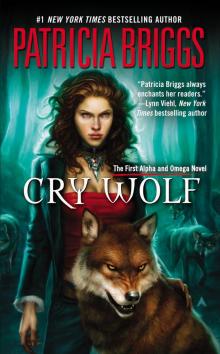 Cry Wolf
Cry Wolf On the Prowl
On the Prowl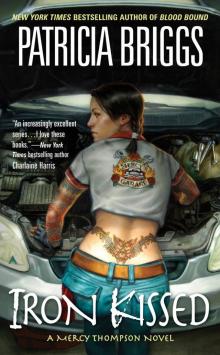 Iron Kissed
Iron Kissed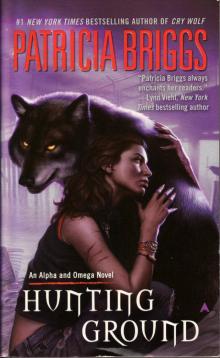 Hunting Ground
Hunting Ground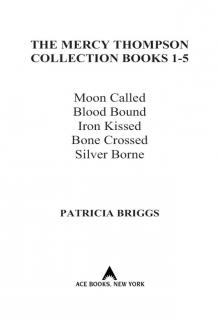 Patricia Briggs Mercy Thompson: Hopcross Jilly
Patricia Briggs Mercy Thompson: Hopcross Jilly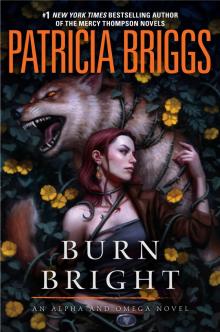 Burn Bright
Burn Bright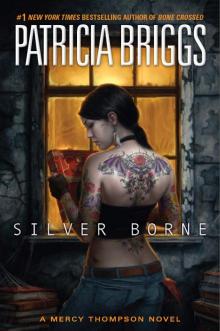 Silver Borne
Silver Borne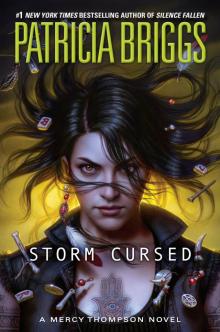 Storm Cursed
Storm Cursed Shifting Shadows
Shifting Shadows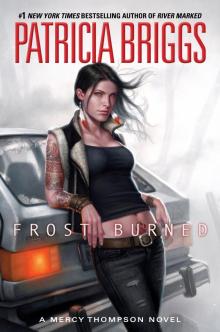 Frost Burned
Frost Burned River Marked
River Marked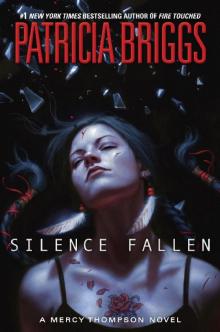 Silence Fallen
Silence Fallen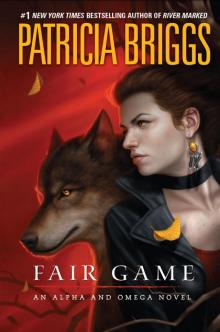 Fair Game
Fair Game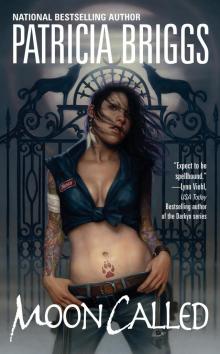 Moon Called
Moon Called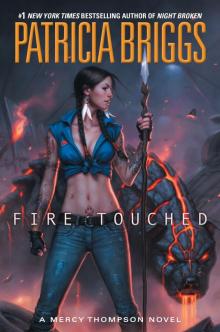 Fire Touched
Fire Touched Dead Heat
Dead Heat Blood Bound
Blood Bound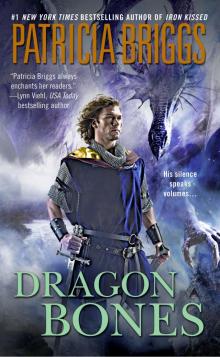 Dragon Bones
Dragon Bones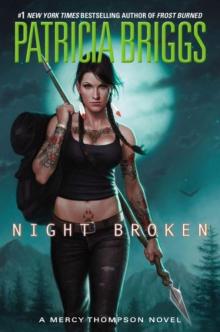 Night Broken
Night Broken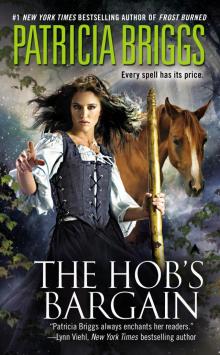 The Hobs Bargain
The Hobs Bargain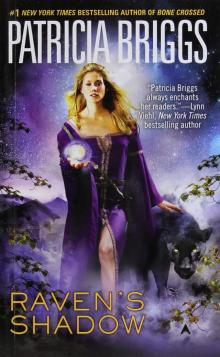 Ravens Shadow
Ravens Shadow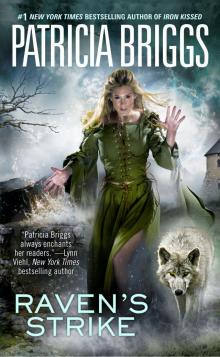 Ravens Strike
Ravens Strike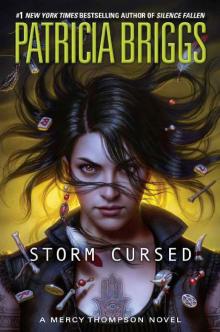 Storm Cursed (A Mercy Thompson Novel)
Storm Cursed (A Mercy Thompson Novel)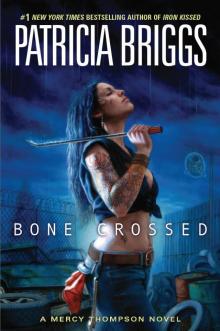 Bone Crossed
Bone Crossed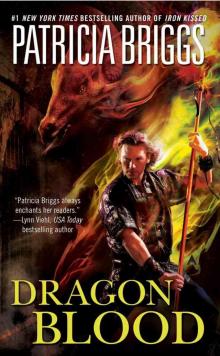 Dragon Blood
Dragon Blood Smoke Bitten: Mercy Thompson: Book 12
Smoke Bitten: Mercy Thompson: Book 12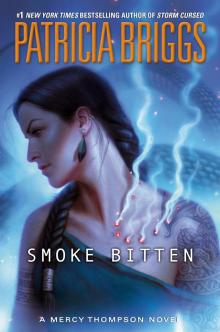 Smoke Bitten
Smoke Bitten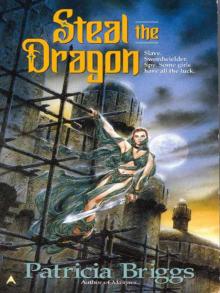 Steal the Dragon
Steal the Dragon 0.5 On The Prowl (alpha and omega)
0.5 On The Prowl (alpha and omega) Alpha and Omega
Alpha and Omega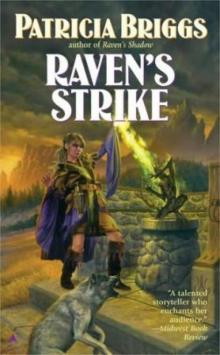 Raven's Strike rd-2
Raven's Strike rd-2![[Mercy 03] - Iron Kissed Read online](http://i1.bookreadfree.com/i/03/24/mercy_03_-_iron_kissed_preview.jpg) [Mercy 03] - Iron Kissed
[Mercy 03] - Iron Kissed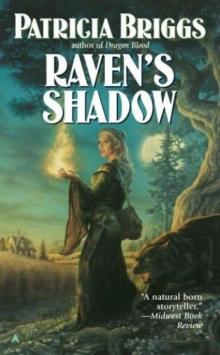 Raven's Shadow rd-1
Raven's Shadow rd-1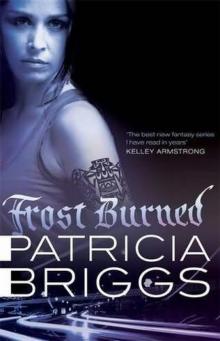 Frost Burned mt-7
Frost Burned mt-7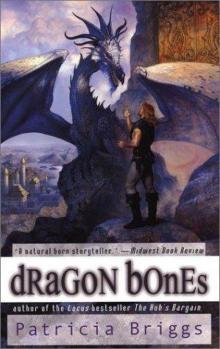 Dragon Bones h-1
Dragon Bones h-1 Shifting Shadows: Stories from the World of Mercy Thompson
Shifting Shadows: Stories from the World of Mercy Thompson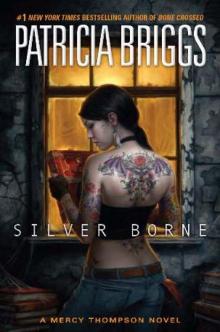 Silver Borne mt-5
Silver Borne mt-5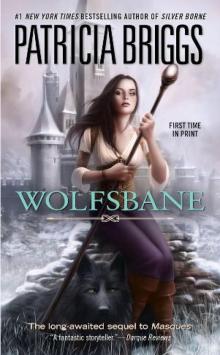 Wolfsbane s-2
Wolfsbane s-2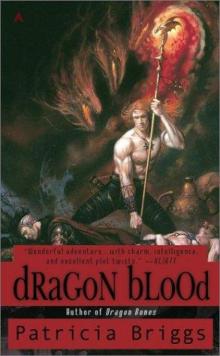 Dragon Blood h-2
Dragon Blood h-2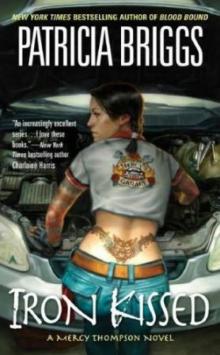 Iron Kissed mt-3
Iron Kissed mt-3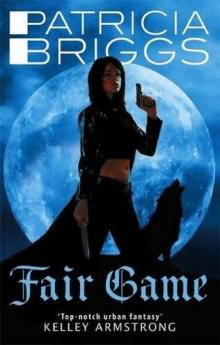 Fair Game aao-3
Fair Game aao-3 Masques s-1
Masques s-1![[Hurog 01] - Dragon Bones Read online](http://i1.bookreadfree.com/i1/04/03/hurog_01_-_dragon_bones_preview.jpg) [Hurog 01] - Dragon Bones
[Hurog 01] - Dragon Bones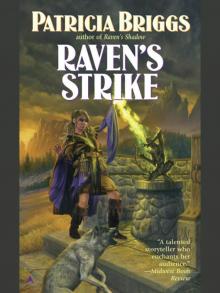 Raven s Strike
Raven s Strike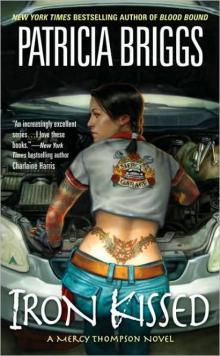 Mercedes Thompson 03: Iron Kissed
Mercedes Thompson 03: Iron Kissed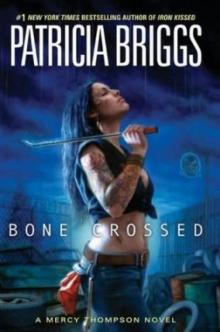 Bone Crossed mt-4
Bone Crossed mt-4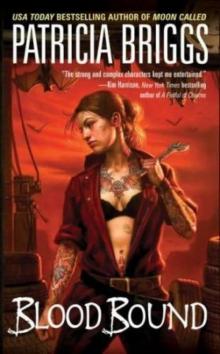 Blood Bound mt-2
Blood Bound mt-2![[Mercy 01] - Moon Called Read online](http://i1.bookreadfree.com/i2/04/09/mercy_01_-_moon_called_preview.jpg) [Mercy 01] - Moon Called
[Mercy 01] - Moon Called River Marked mt-6
River Marked mt-6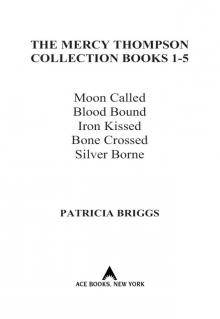 The Mercy Thompson Collection
The Mercy Thompson Collection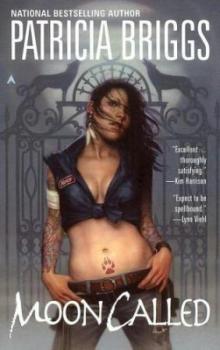 Moon Called mt-1
Moon Called mt-1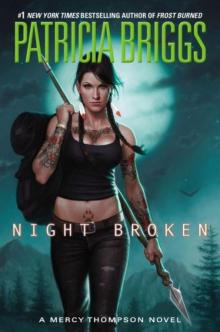 Mercy Thompson 8: Night Broken
Mercy Thompson 8: Night Broken